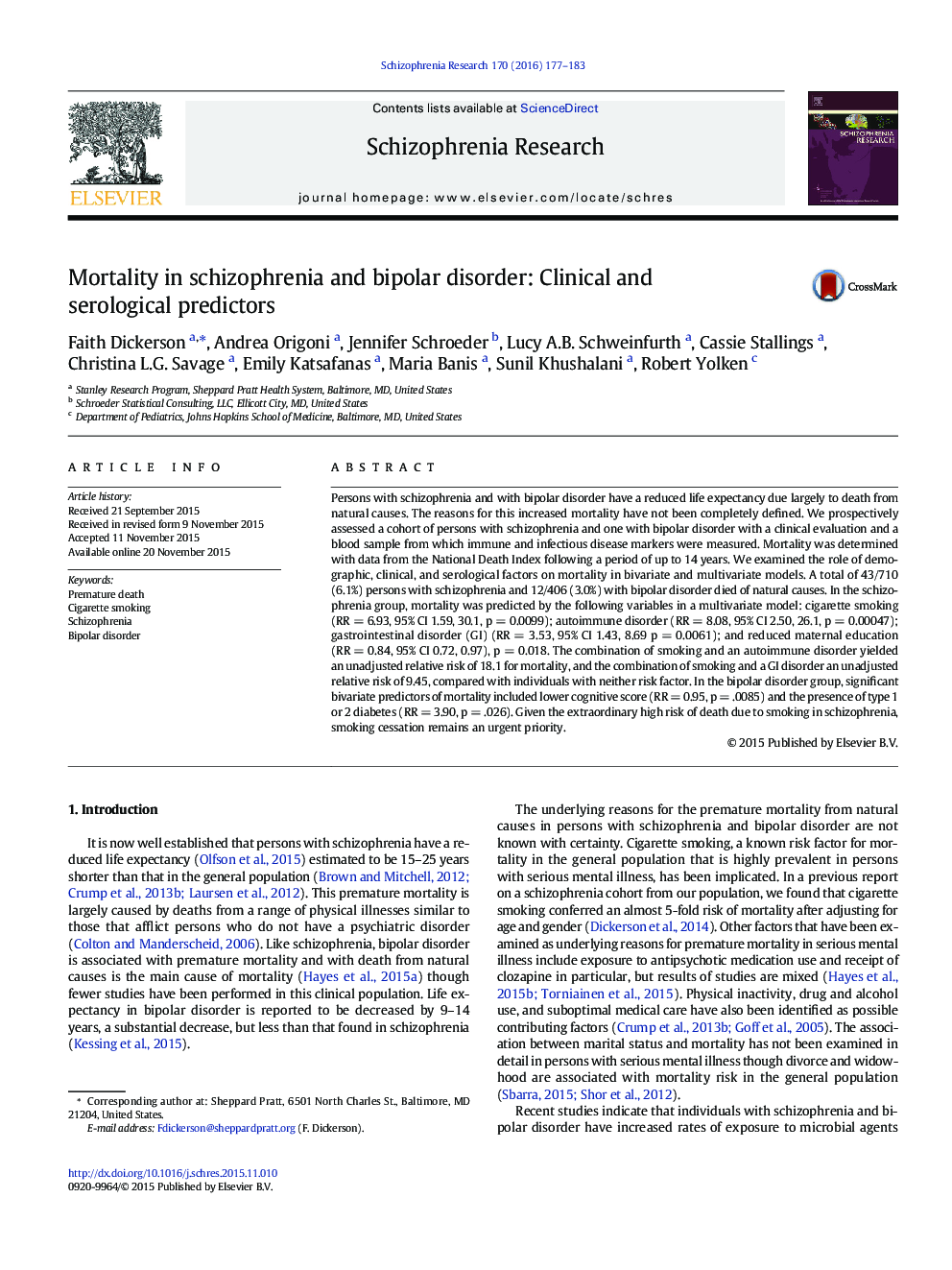| Article ID | Journal | Published Year | Pages | File Type |
|---|---|---|---|---|
| 10307919 | Schizophrenia Research | 2016 | 7 Pages |
Abstract
Persons with schizophrenia and with bipolar disorder have a reduced life expectancy due largely to death from natural causes. The reasons for this increased mortality have not been completely defined. We prospectively assessed a cohort of persons with schizophrenia and one with bipolar disorder with a clinical evaluation and a blood sample from which immune and infectious disease markers were measured. Mortality was determined with data from the National Death Index following a period of up to 14 years. We examined the role of demographic, clinical, and serological factors on mortality in bivariate and multivariate models. A total of 43/710 (6.1%) persons with schizophrenia and 12/406 (3.0%) with bipolar disorder died of natural causes. In the schizophrenia group, mortality was predicted by the following variables in a multivariate model: cigarette smoking (RR = 6.93, 95% CI 1.59, 30.1, p = 0.0099); autoimmune disorder (RR = 8.08, 95% CI 2.50, 26.1, p = 0.00047); gastrointestinal disorder (GI) (RR = 3.53, 95% CI 1.43, 8.69 p = 0.0061); and reduced maternal education (RR = 0.84, 95% CI 0.72, 0.97), p = 0.018. The combination of smoking and an autoimmune disorder yielded an unadjusted relative risk of 18.1 for mortality, and the combination of smoking and a GI disorder an unadjusted relative risk of 9.45, compared with individuals with neither risk factor. In the bipolar disorder group, significant bivariate predictors of mortality included lower cognitive score (RR = 0.95, p = .0085) and the presence of type 1 or 2 diabetes (RR = 3.90, p = .026). Given the extraordinary high risk of death due to smoking in schizophrenia, smoking cessation remains an urgent priority.
Related Topics
Life Sciences
Neuroscience
Behavioral Neuroscience
Authors
Faith Dickerson, Andrea Origoni, Jennifer Schroeder, Lucy A.B. Schweinfurth, Cassie Stallings, Christina L.G. Savage, Emily Katsafanas, Maria Banis, Sunil Khushalani, Robert Yolken,
